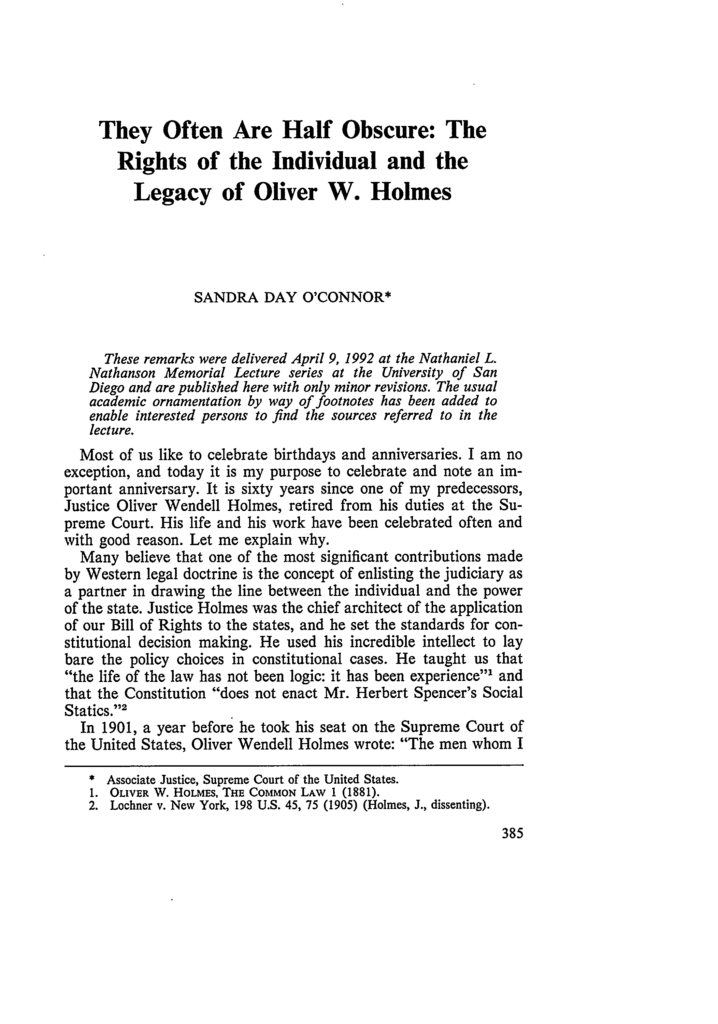They Often Are Half Obscure: The Rights of the Individual and the Legacy of Oliver W. Holmes
April 9, 1992
ITEM DETAILS

DISCLAIMER: This text has been transcribed automatically and may contain substantial inaccuracies due to the limitations of automatic transcription technology. This transcript is intended only to make the content of this document more easily discoverable and searchable. If you would like to quote the exact text of this document in any piece of work or research, please view the original using the link above and gather your quote directly from the source. The Sandra Day O'Connor Institute does not warrant, represent, or guarantee in any way that the text below is accurate.
Article Text
(Automatically generated)
© COPYRIGHT NOTICE: This Speech / Interview / Article by Justice O'Connor constitutes copyrighted material. The excerpt above is provided here for research purposes only under the terms of fair use (17 U.S.C. § 107). To view the complete original, please visit Heinonline.org
